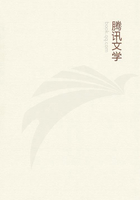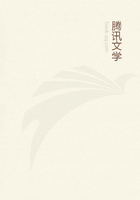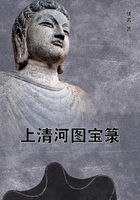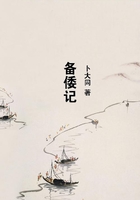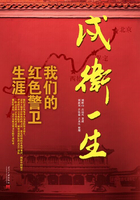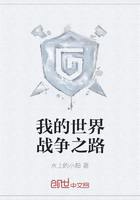The discipline of workshops, of schools, of private families, though not more efficient than at present, was infinitely harsher. Masters, well born and bred, were in the habit of beating their servants. Pedagogues knew no way of imparting knowledge but by beating their pupils. Husbands, of decent station, were not ashamed to beat their wives. The implacability of hostile factions was such as we can scarcely conceive. Whigs were disposed to murmur because Stafford was suffered to die without seeing his bowels burned before his face. Tories reviled and insulted Russell as his coach passed from the Tower to the scaffold in Lincoln's Inn Fields.204 As little mercy was shown by the populace to sufferers of a humbler rank. If an offender was put into the pillory, it was well if he escaped with life from the shower of brickbats and paving stones.205 If he was tied to the cart's tail, the crowd pressed round him, imploring the hangman to give it the fellow well, and make him howl.206Gentlemen arranged parties of pleasure to Bridewell on court days for the purpose of seeing the wretched women who beat hemp there whipped.207 A man pressed to death for refusing to plead, a woman burned for coining, excited less sympathy than is now felt for a galled horse or an overdriven ox. Fights compared with which a boxing match is a refined and humane spectacle were among the favourite diversions of a large part of the town. Multitudes assembled to see gladiators hack each other to pieces with deadly weapons, and shouted with delight when one of the combatants lost a finger or an eye. The prisons were hells on earth, seminaries of every crime and of every disease. At the assizes the lean and yellow culprits brought with them from their cells to the dock an atmosphere of stench and pestilence which sometimes avenged them signally on bench, bar, and jury. But on all this misery society looked with profound indifference. Nowhere could be found that sensitive and restless compassion which has, in our time, extended a powerful protection to the factory child, to the Hindoo widow, to the negro slave, which pries into the stores and watercasks of every emigrant ship, which winces at every lash laid on the back of a drunken soldier, which will not suffer the thief in the hulks to be ill fed or overworked, and which has repeatedly endeavoured to save the life even of the murderer. It is true that compassion ought, like all other feelings, to be under the government of reason, and has, for want of such government, produced some ridiculous and some deplorable effects.
But the more we study the annals of the past, the more shall we rejoice that we live in a merciful age, in an age in which cruelty is abhorred, and in which pain, even when deserved, is inflicted reluctantly and from a sense of duty. Every class doubtless has gained largely by this great moral change: but the class which has gained most is the poorest, the most dependent, and the most defenceless.
The general effect of the evidence which has been submitted to the reader seems hardly to admit of doubt. Yet, in spite of evidence, many will still image to themselves the England of the Stuarts as a more pleasant country than the England in which we live. It may at first sight seem strange that society, while constantly moving forward with eager speed, should be constantly looking backward with tender regret. But these two propensities, inconsistent as they may appear, can easily be resolved into the same principle. Both spring from our impatience of the state in which we actually are. That impatience, while it stimulates us to surpass preceding generations, disposes us to overrate their happiness. It is, in some sense, unreasonable and ungrateful in us to be constantly discontented with a condition which is constantly improving. But, in truth, there is constant improvement precisely because there is constant discontent. If we were perfectly satisfied with the present, we should cease to contrive, to labour, and to save with a view to the future. And it is natural that, being dissatisfied with the present, we should form a too favourable estimate of the past.
In truth we are under a deception similar to that which misleads the traveller in the Arabian desert. Beneath the caravan all is dry and bare: but far in advance, and far in the rear, is the semblance of refreshing waters. The pilgrims hasten forward and find nothing but sand where an hour before they had seen a lake.
They turn their eyes and see a lake where, an hour before, they were toiling through sand. A similar illusion seems to haunt nations through every stage of the long progress from poverty and barbarism to the highest degrees of opulence and civilisation.
But if we resolutely chase the mirage backward, we shall find it recede before us into the regions of fabulous antiquity. It is now the fashion to place the golden age of England in times when noblemen were destitute of comforts the want of which would be intolerable to a modern footman, when farmers and shopkeepers breakfasted on loaves the very sight of which would raise a riot in a modern workhouse, when to have a clean shirt once a week was a privilege reserved for the higher class of gentry, when men died faster in the purest country air than they now die in the most pestilential lanes of our towns, and when men died faster in the lanes of our towns than they now die on the coast of Guiana.
We too shall, in our turn, be outstripped, and in our turn be envied. It may well be, in the twentieth century, that the peasant of Dorsetshire may think himself miserably paid with twenty shillings a week; that the carpenter at Greenwich may receive ten shillings a day; that labouring men may be as little used to dine without meat as they now are to eat rye bread; that sanitary police and medical discoveries may have added several more years to the average length of human life; that numerous comforts and luxuries which are now unknown, or confined to a few, may be within the reach of every diligent and thrifty working man. And yet it may then be the mode to assert that the increase of wealth and the progress of science have benefited the few at the expense of the many, and to talk of the reign of Queen Victoria as the time when England was truly merry England, when all classes were bound together by brotherly sympathy, when the rich did not grind the faces of the poor, and when the poor did not envy the splendour of the rich.

